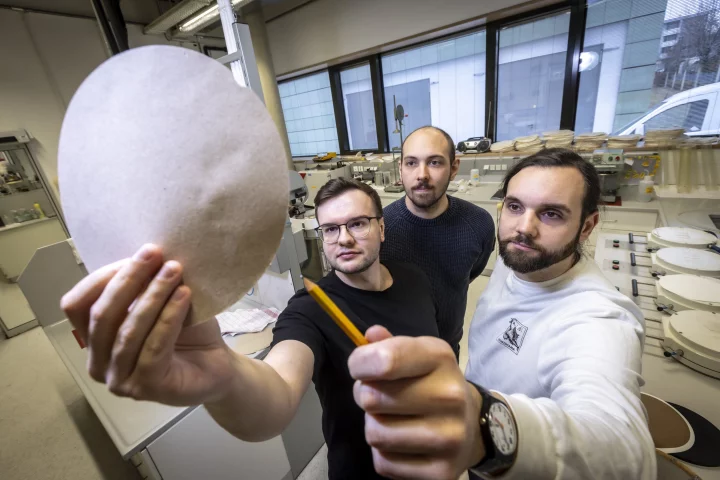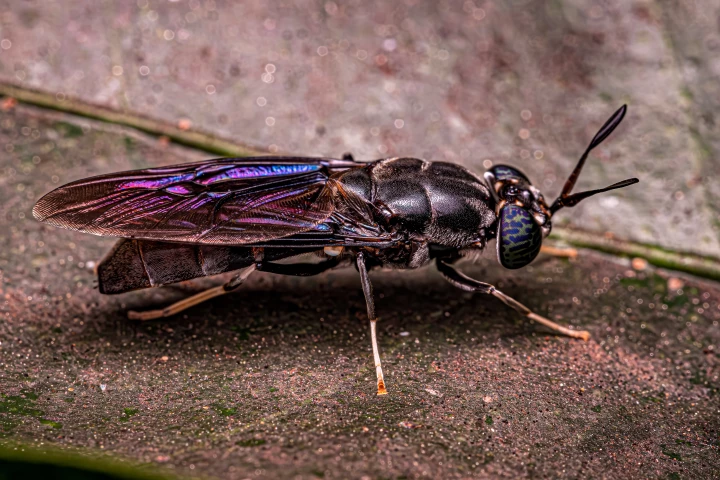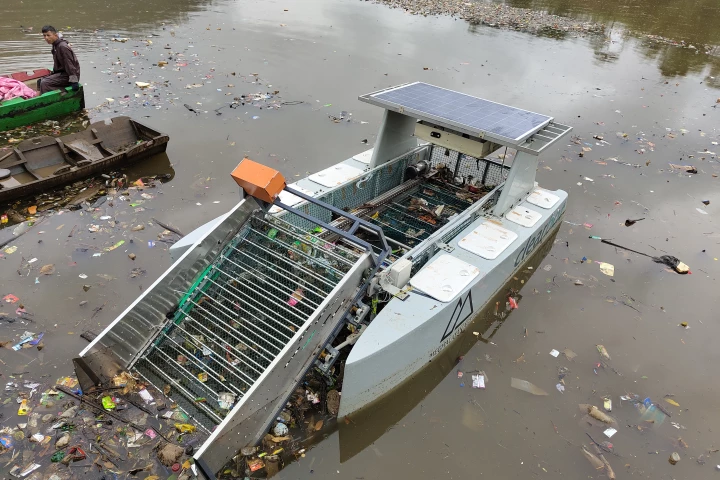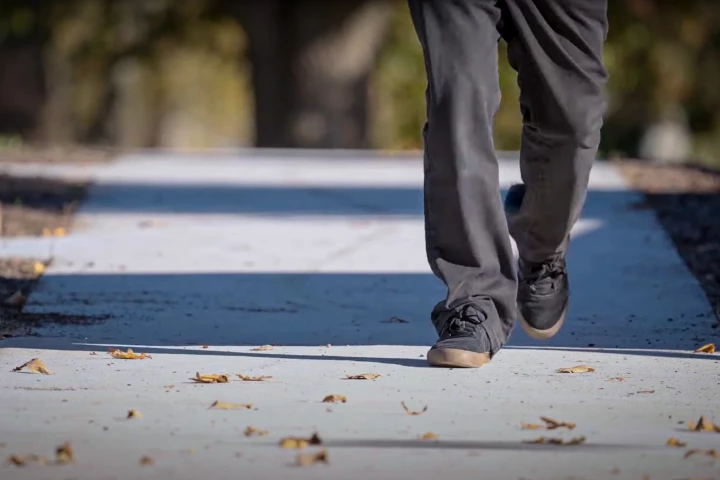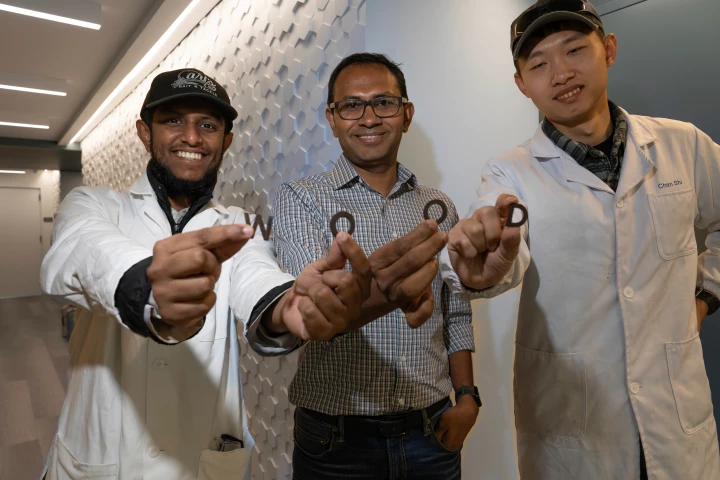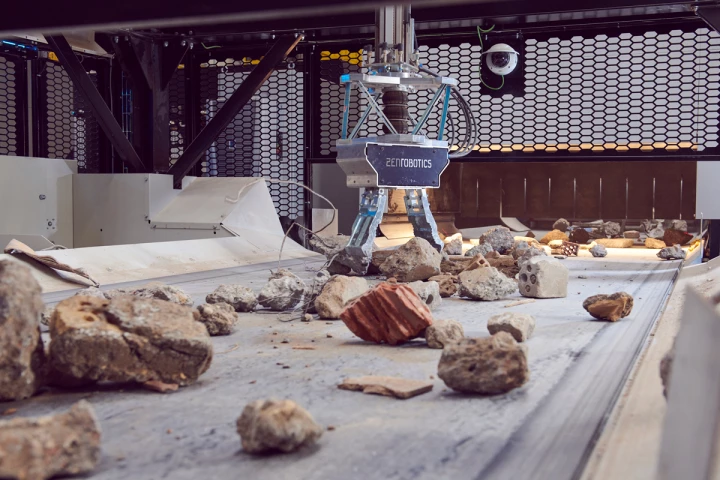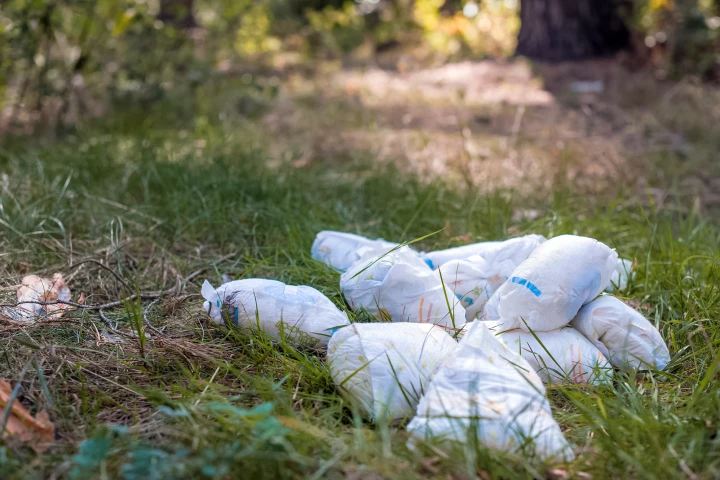Waste
-
While it's great that many types of paper can now be recycled, textile waste is still mostly dumped or burned. A new technique could change that by combining the two materials, using discarded cotton clothing to boost the strength of packaging paper.
-
Nuclear waste. We've all heard about it but what exactly is it and why is it so important? How big is the problem and is it a problem without a solution? New Atlas takes a look at the basics.
-
"We can feed black soldier flies straight, dirty trash," says a team that's working to turn insects into landfill-clearing biomanufacturing machines that turn regular, dangerous or contaminated garbage into a range of high-value products.
-
Clear Robotics is expanding its fleet of autonomous marine trash collectors. Its Class 3 vessel boasts more onboard storage capacity plus towed barge potential for extended cleanup operations, and has also been designed to tackle invasive weeds.
-
In a world first, the researchers who used waste coffee grounds to make concrete that’s 30% stronger are putting their innovative material to the test by laying sidewalks made of the stuff to see how it fares when it's subjected to foot traffic.
-
Let's face it, eating a reheated meal in a cramped coach seat is never going to be a fine-dining experience, but airlines are now looking to new technology to give us more of what we want, ultimately reducing the current shameful amount of food waste.
-
Scientists have developed a new "ink" that allows objects to be 3D-printed out of wood. The material could reduce the amount of wood that gets wasted in the manufacturing of various products, plus it could utilize existing wood waste.
-
Sorting trash is one of those tasks that people can get pretty tired of, pretty fast. That's why ZenRobotics makes robots that do the job. The company's latest generation is particularly trash-savvy, as it can ID over 500 types of waste.
-
Although we should try to keep as little of our organic waste as possible from going to the landfill, not everyone has the outdoor space for a compost heap. The Puresky Waste Composter is designed to help, by moving the composting indoors.
-
To drive down the cost of biodiesel, researchers have developed an eco-friendly way of extracting triacetin, a combustion-enhancing additive, from an abundant waste source, cigarette butts, both reducing waste and providing a sustainable use for it.
-
Disposable diapers are a huge source of global waste, largely because they're difficult to recycle. A new process, however, could salvage the "superabsorber" polymer utilized in the liners of those diapers – and yes, even if they're soiled.
-
Researchers have turned lignin into nanoparticles that can create a transparent coating with antifog properties or a colorful antireflective surface, transforming this abundant waste product into a useful material with diverse applications.
Load More
